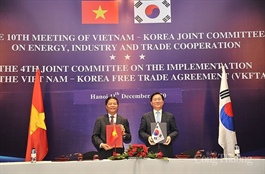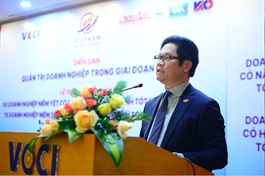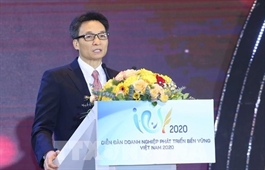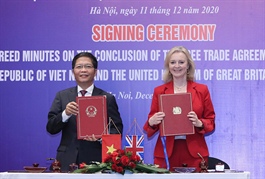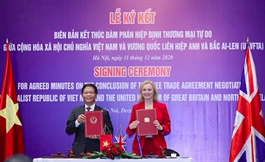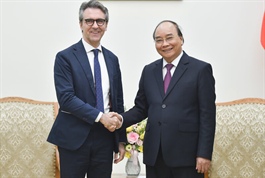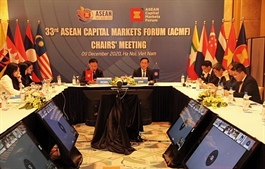Collective economy to boost farming households' growth: Deputy PM
Collective economy to boost farming households' growth: Deputy PM
International practices show a country with high development level and competitiveness would pose a strong developed collective economy.
A strong development of a collective economy and its cooperatives does not diminish the role of farm households, but on the contrary, to help them grow.
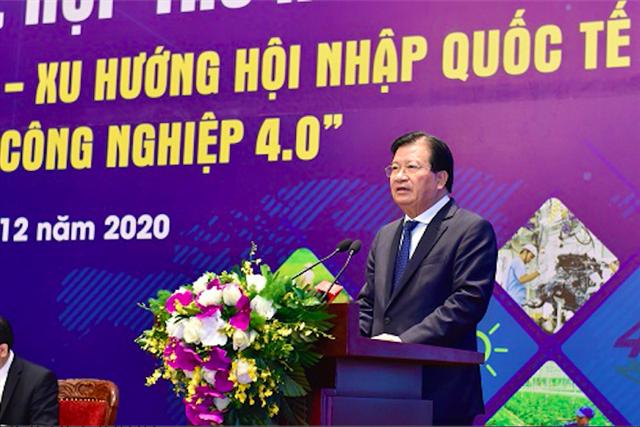
Deputy Prime Minister Trinh Dinh Dung at the forum. Photo: Nhat Bac.
|
Deputy Prime Minister Trinh Dinh Dung shared the view at the forum discussing collective economy during the Industry 4.0 era on December 11.
“Vietnam’s collective economy and cooperatives at its core are an essential part of the economy that holds significant meaning to all aspects that range from economy, politics, culture and society,” stated Mr. Dung.
Mr. Dung said the cooperative model is aimed to mobilize knowledge, experience and resources from all individual members to gain greater competitiveness and address shortcomings of small and fragmented production.
“By late 2020, Vietnam is estimated to have over 26,000 cooperatives, 100 cooperative unions and 120,000 cooperative groups,” informed Mr. Dung, adding the sector of collective economy currently has 7.7 million members and create jobs for 2.2 million others.
The contribution of the collective economy to the overall GDP, however, remains modest, while the majority of cooperatives are of small scale and with low competitiveness, Mr. Dung stated.
“To ensure a sustainable and rapid development of the collective economy model, it is essential to retain the voluntary principles, in which the participation in such model should come from the people’s own-interest,” Mr. Dung added.
Mr. Dung said cooperatives should bolster their linkages with each other to form value chains and contribute substantially for socio-economic development, especially in rural areas.
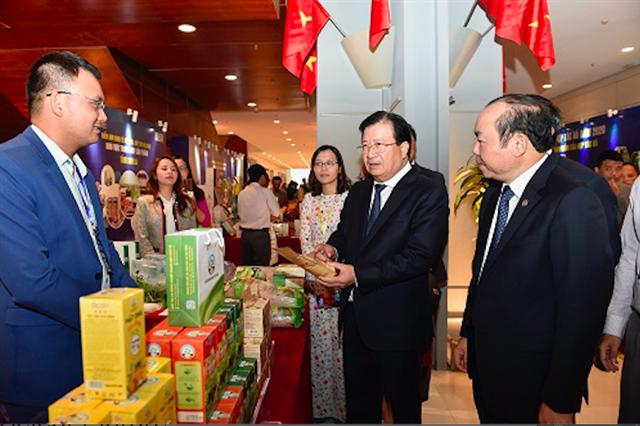
Products from cooperatives displayed at the forum. Photo: Nhat Bac.
|
Learning from international practices
In a modern world, Mr. Dung expected the development of a collective economy should be in line with objectivity principle and based on science, technology, innovation and digital transformation.
“Vietnam should learn from successful practices from other countries to further improve the domestic collective economy,” he added.
In this process, the government is responsible for finalizing policies and regulations for the collective economy and address shortcomings in the 2012 Cooperative Law for greater simplification in the establishment and dissolution of cooperatives.
Deputy Minister of Planning and Investment Tran Quoc Phuong noted as people join cooperatives, they are ensured of low input costs and steady income sources.
According to Mr. Phuong, the world currently has 3 million cooperatives with 1.2 billion members, which help create 250 million jobs and generate US$2.2 trillion in revenue.
“International practices show a country with high development level and competitiveness would pose a strong developed collective economy,” he stated, adding 300 cooperatives with highest revenue globally come from France, Germany, Japan, the US and South Korea.
By late 2025, Vietnam targets to create 10,000 new collective economy group, including cooperatives, cooperative unions and groups, as well as attracting 8 million members joining these models. Of the sum, 3,000 collective models should apply high technologies with products developed from value chains.







